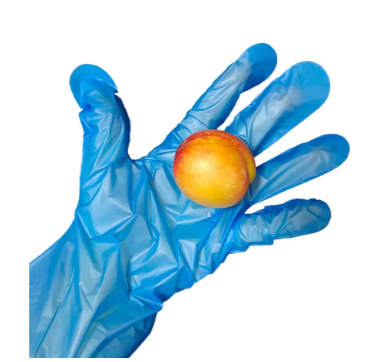The Rising Importance of Compostable Protective Wear
In an era where environmental consciousness meets workplace safety, compostable gloves certification has emerged as a crucial consideration for businesses and consumers alike. These innovative protective solutions represent a significant leap forward in sustainable personal protective equipment (PPE), offering both functionality and environmental responsibility. As organizations worldwide shift towards greener alternatives, understanding the certification process and standards for compostable gloves becomes increasingly vital.
The certification of compostable gloves involves rigorous testing and compliance with international standards, ensuring that these products truly break down into natural elements without leaving harmful residues. This comprehensive certification process guarantees that businesses can confidently make environmental claims while maintaining the highest safety standards for their users.
Certification Standards and Requirements
International Certification Bodies
The path to compostable gloves certification involves several recognized international organizations that set and maintain standards. Leading certification bodies such as BPI (Biodegradable Products Institute), TÜV Austria, and DIN CERTCO play pivotal roles in verifying and certifying compostable products. These organizations assess products against established standards like ASTM D6400, EN 13432, and ISO 17088.
Each certification body maintains specific testing protocols and requirements that manufacturers must meet. These typically include detailed analysis of material composition, biodegradation rates, and the absence of harmful substances that could contaminate compost systems.
Testing Procedures and Protocols
The certification process for compostable gloves involves multiple phases of testing under controlled conditions. Products undergo biodegradation testing, which measures how completely the material breaks down into natural elements. Disintegration tests evaluate the physical breakdown of the gloves, while ecotoxicity assessments ensure no harmful residues remain in the resulting compost.
Laboratory analysis confirms the absence of heavy metals and other regulated substances. The entire testing cycle typically spans several months to verify complete biodegradation under industrial composting conditions.
Material Requirements and Specifications
Approved Raw Materials
Certified compostable gloves must be manufactured using materials that meet strict biodegradability requirements. Common approved materials include PLA (Polylactic Acid), PBAT (Polybutylene Adipate Terephthalate), and various plant-based polymers. These materials undergo extensive screening to ensure they contain no persistent synthetic components.
Manufacturers must maintain detailed documentation of material sources and composition. This includes verification that all additives, colorants, and processing aids also meet compostability standards.
Performance Requirements
Beyond environmental considerations, certified compostable gloves must demonstrate performance characteristics comparable to traditional alternatives. This includes tensile strength, puncture resistance, and barrier properties appropriate for their intended use. The certification process ensures that environmental benefits don't come at the expense of functionality.
Durability testing under various conditions helps verify that the gloves maintain their protective properties throughout their intended use period while remaining fully compostable at end-of-life.
Environmental Impact Assessment
Biodegradation Metrics
Certification standards typically require that compostable gloves achieve at least 90% biodegradation within a specified timeframe, usually 180 days under industrial composting conditions. This process is carefully monitored and documented through standardized testing methods that measure CO2 evolution and material conversion.
Regular testing ensures consistent biodegradation performance across production batches, with detailed reporting requirements to maintain certification status.
Ecological Footprint Analysis
The certification process includes comprehensive evaluation of the product's overall environmental impact. This encompasses raw material sourcing, manufacturing processes, and end-of-life management. Life cycle assessments help quantify the environmental benefits compared to conventional alternatives.
Certified products must demonstrate reduced carbon footprint and minimal environmental impact throughout their lifecycle, from production to disposal.
Industry Applications and Market Access
Sector-Specific Requirements
Different industries may have additional requirements beyond basic compostable gloves certification. Healthcare facilities might need specific barrier properties, while food service operations require food-contact compliance. The certification process addresses these varying needs while maintaining environmental standards.
Manufacturers must often obtain multiple certifications to serve different market segments, each with its own regulatory framework and performance requirements.
Global Market Recognition
Certified compostable gloves gain access to markets worldwide through mutual recognition agreements between certification bodies. This international acceptance helps manufacturers expand their reach while maintaining consistent environmental standards across different regions.
Recognition by major retailers and procurement organizations further validates the importance of proper certification in market access and consumer acceptance.
Frequently Asked Questions
How long does the certification process typically take?
The certification process for compostable gloves typically takes 6-12 months, including all required testing phases and documentation review. This timeline ensures thorough verification of all biodegradation and performance requirements.
What distinguishes certified compostable gloves from biodegradable ones?
Certified compostable gloves meet specific standards for complete biodegradation under industrial composting conditions within a defined timeframe, while biodegradable products may break down partially or take longer to decompose. Certification provides verified proof of these characteristics.
Are certified compostable gloves suitable for all industrial applications?
While certified compostable gloves meet general safety and performance standards, specific industrial applications may require additional certifications or properties. Users should verify that the certified products meet their particular industry requirements and use case specifications.



